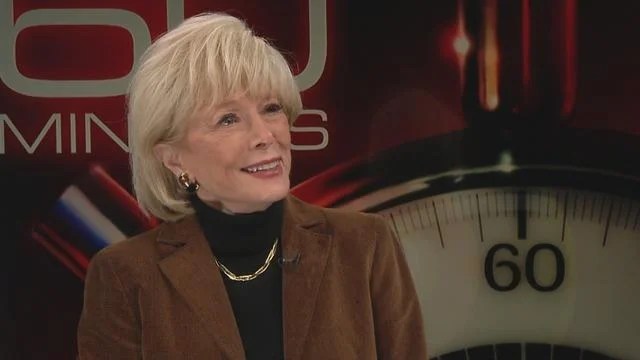The iconic television news program "60 Minutes" has captivated audiences for over five decades, revealing the inner workings of society through investigative journalism and compelling storytelling. Each week, millions tune in to watch the fearless reporters tackle pressing issues, from politics and social justice to groundbreaking medical discoveries. The show's unique format, combining in-depth interviews with investigative pieces, has made it a trusted source of information and a platform for accountability.
At the heart of "60 Minutes" lies a team of dedicated reporters who are not only skilled journalists but also passionate storytellers. These reporters dive deep into their subjects, often spending months researching and interviewing to bring the most accurate and engaging stories to light. Their commitment to uncovering the truth and shedding light on important issues sets them apart in the field of journalism.
As we look into the world of "60 Minutes reporters," we will explore who they are, their backgrounds, and what drives them to pursue such important work. From their riveting profiles to their impactful stories, this article will provide an in-depth look into the lives of these extraordinary individuals who bring the truth to our screens every Sunday night.
Who Are the Key Reporters on 60 Minutes?
The team of reporters on "60 Minutes" is diverse and talented, each bringing their unique perspective and expertise to the program. Some of the most notable reporters include:
- Lesley Stahl
- Scott Pelley
- Lara Logan
- Bill Whitaker
- Anderson Cooper
What Makes 60 Minutes Reporters Stand Out?
What sets "60 Minutes reporters" apart from other journalists? Their unique approach to storytelling and commitment to accuracy make them exceptional. Here are a few reasons why they stand out:
- In-depth research on complex subjects
- Engaging storytelling that captivates audiences
- Fearlessness in tackling controversial topics
- Strong ethical standards in journalism
How Do 60 Minutes Reporters Prepare for Their Stories?
The preparation process for "60 Minutes reporters" is rigorous and multi-faceted. Here’s a glimpse into their approach:
1. **Research**: Reporters spend countless hours gathering information and understanding the context of the stories they cover. 2. **Interviews**: They conduct interviews with various sources, including experts, eyewitnesses, and those directly involved in the story. 3. **Fact-checking**: A crucial step in the process, ensuring that all information presented is accurate and reliable. 4. **Editing**: Collaborating with producers and editors to craft a compelling narrative that resonates with viewers.What Are Some Iconic Stories Covered by 60 Minutes Reporters?
Over the years, "60 Minutes reporters" have tackled numerous significant stories that have left a lasting impact. Some of the most iconic segments include:
- The Watergate scandal
- Interviews with world leaders
- Investigations into corporate fraud
- Coverage of humanitarian crises
What Is the Impact of 60 Minutes Reporters on Society?
The influence of "60 Minutes reporters" extends far beyond the television screen. Their investigative pieces often lead to:
- **Policy changes**: By bringing attention to critical issues, they can inspire lawmakers to take action. - **Public awareness**: Their stories educate the public on important topics, sparking conversations and debates. - **Accountability**: Investigative journalism holds powerful individuals and organizations accountable for their actions.Can You Name Some Notable 60 Minutes Reporters Throughout History?
Over the years, several "60 Minutes reporters" have made a significant mark on journalism:
| Name | Role | Years Active | |-----------------|--------------------------|----------------| | Mike Wallace | Correspondent | 1968 - 2012 | | Morley Safer | Correspondent | 1970 - 2016 | | Ed Bradley | Correspondent | 1981 - 2006 | | Dan Rather | Correspondent | 1975 - 1981 | | Lesley Stahl | Correspondent | 1991 - Present |What Challenges Do 60 Minutes Reporters Face?
Despite their success, "60 Minutes reporters" encounter various challenges in their work, including:
- **Access to information**: Obtaining interviews and data can be difficult, especially with high-profile subjects. - **Public scrutiny**: Reporters often face backlash from those they cover, especially when exposing uncomfortable truths. - **Time constraints**: While they strive for thoroughness, the fast-paced nature of news can pressure reporters to meet deadlines.How Can You Watch 60 Minutes Reporters in Action?
If you're interested in witnessing the work of "60 Minutes reporters," there are several ways to catch their segments:
1. **Television**: Tune in to CBS every Sunday evening. 2. **Online streaming**: Visit the CBS website or app for full episodes and clips. 3. **Podcasts**: Listen to behind-the-scenes stories and interviews with reporters.Why Should You Follow 60 Minutes Reporters?
Following "60 Minutes reporters" provides valuable insights into current events and critical issues. By staying informed, you can:
- **Engage in meaningful conversations**: Knowledge of current affairs helps you participate in discussions. - **Understand diverse perspectives**: Their stories often highlight the experiences of underrepresented communities. - **Support ethical journalism**: By following credible reporters, you contribute to the demand for high-quality journalism.In conclusion, "60 Minutes reporters" play a vital role in our society, delivering impactful stories that inform, engage, and inspire. Their dedication to uncovering the truth and holding power accountable is more important than ever in today's rapidly changing world.
You Might Also Like
Discovering Lewis Pullman: A Rising Star In HollywoodDarryl Sheets: The Man Behind The Treasure Hunts
Unveiling The Life And Career Of Jeffrey Jones
Unveiling The Charisma Of Jason Momoa: The Man Behind The Characters
Unraveling The Mystery: Is Trump The Antichrist?
Article Recommendations
- Jazzy Chris Distefano Wife
- Is Luke Mably Married
- Tobias Menzies Wife
- Wentworth Miller Height
- Mkvcinemascom
- 5starsstockscom Value Stocks
- Ana Kasparian Attacked
- Elizabeth Rose Cameron
- Melissa Mcknight
- Yang Yang Wife 2024


